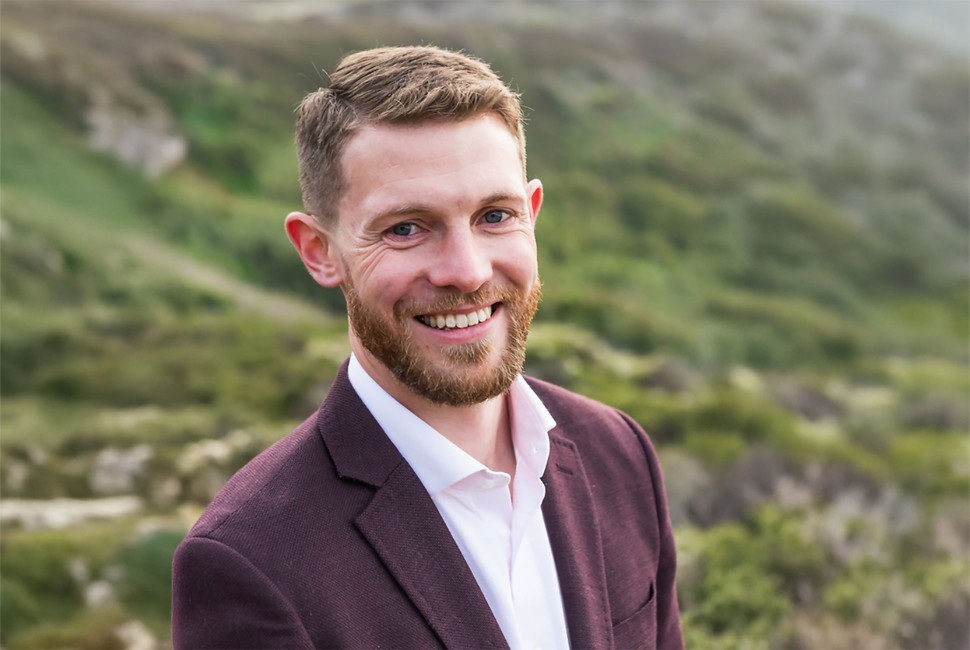Northwestern University chemist James Gaynor has been named a 2025 Beckman Young Instigator by the Arnold and Mabel Beckman Foundation.
Established in 1991, the Beckman Young Investigator Program supports the most promising young faculty members in the early stages of their academic careers in the chemical and life sciences. It is particularly designed to foster the invention of methods, instruments and materials to open new avenues of scientific research. Each awardee receives $600,000 in funding across four years.
Gaynor, an assistant professor of chemistry at Northwestern’s Weinberg College of Arts and Sciences, is one of just 10 recipients selected from a pool of approximately 300 applicants. He is Northwestern’s first recipient in a decade; Weinberg neurobiologist Yevgenia Kozorovitskiy received the honor in 2015.
Gaynor will use the funds to develop new tools that can probe, for the first time, how an electron’s spin and motion interact with the shape of its molecule. The work will focus specifically on chiral molecules. Chirality occurs when an object and its mirror image cannot be perfectly superimposed on top of one another.
“Recent discoveries show that chiral molecules and materials can selectively transport electrons that spin in one direction versus the opposite direction,” Gaynor said. “Using this property could dramatically improve our control over how energy moves at the atomic scale. There is no reason to expect that electron spin and molecular chirality should affect one another, but, apparently, they do. And we do not understand how because we currently do not have methods to directly measure how electron spin and motion correlate with chirality.”
To help understand this relationship, Gaynor and his team will develop new ultrafast, laser-based spectroscopies, which will enable researchers to directly measure correlations among different types of motions in molecules and materials. By controlling how electrons move and spin, researchers potentially could improve energy management at the smallest levels, including inside tiny computer chips and solar panels.
"Our newest cohort of young researchers are involved in high-risk, high-reward work that will address wide-ranging challenges over the next four years, from developing new methods to directly probe chirality-induced spin selectivity to imaging the role of topological surface states in efficient heterogeneous catalysis to integrating synthetic and natural nanomaterials for next generation immunotherapy, and more,” said Anne Hultgren, executive director of the Arnold and Mabel Beckman Foundation. “We are thrilled to welcome each of these excellent scientists into the Beckman ‘family,’ to facilitate the launch of these extremely innovative projects, and to witness them achieve their full potential.”


